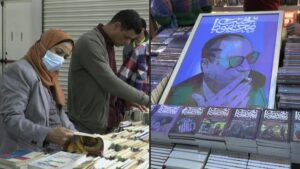Germany urges Bosnia’s Serb entity to end separatist policies
BERLIN (AA) – Germany on Friday called on Bosnia and Herzegovina’s Serb politicians to end their secessionist policies, and pave the way for the country’s EU membership.
Foreign Minister Annalena Baerbock told her counterparts, during a Western Balkans conference in Berlin, that Germany strongly supports Bosnia and Herzegovina’s EU perspective, but expects steps from the country’s leaders.
“People in Bosnia and Herzegovina have voted in important elections this month, congratulations,” Baerbock said, referring to the elections held on Oct. 2, following heightened tensions in the country.
“Now it’s equally important that Republika Srpska ends political blockades and separatist policies, that’s in the interest of all people in your country,” she stressed.
Serb leader Milorad Dodik caused heightened tensions ahead of the elections by threatening to withdraw from state institutions, taking steps towards the secession of the Republika Srpska, the Bosnian Serb entity of the country.
Baerbock said Bosnia and Herzegovina’s leaders have to take necessary steps, make progress in reforms to meet the criteria for EU membership.
“With this in mind, we will have a close look at the European Commission’s recommendation on Bosnia and Herzegovina’s candidate status, and I think we can really deliver together on these important matters,” she said.
The European Commission recommended last week granting EU candidate status to Bosnia and Herzegovina, but also called for steps to reinforce democracy, functionality of state institutions, to strengthen fight against corruption and organized crime.
Since the end of 1990s war, and the 1995 Dayton Peace Accords, the country has a political system dubbed as the world’s most complicated. It comprises two entities: the Federation of Bosnia and Herzegovina, and Republika Srpska.
The two entities have broad autonomy and all actions require consensus from the country’s three main ethnic groups – Serbs, Bosniaks and Croats.








